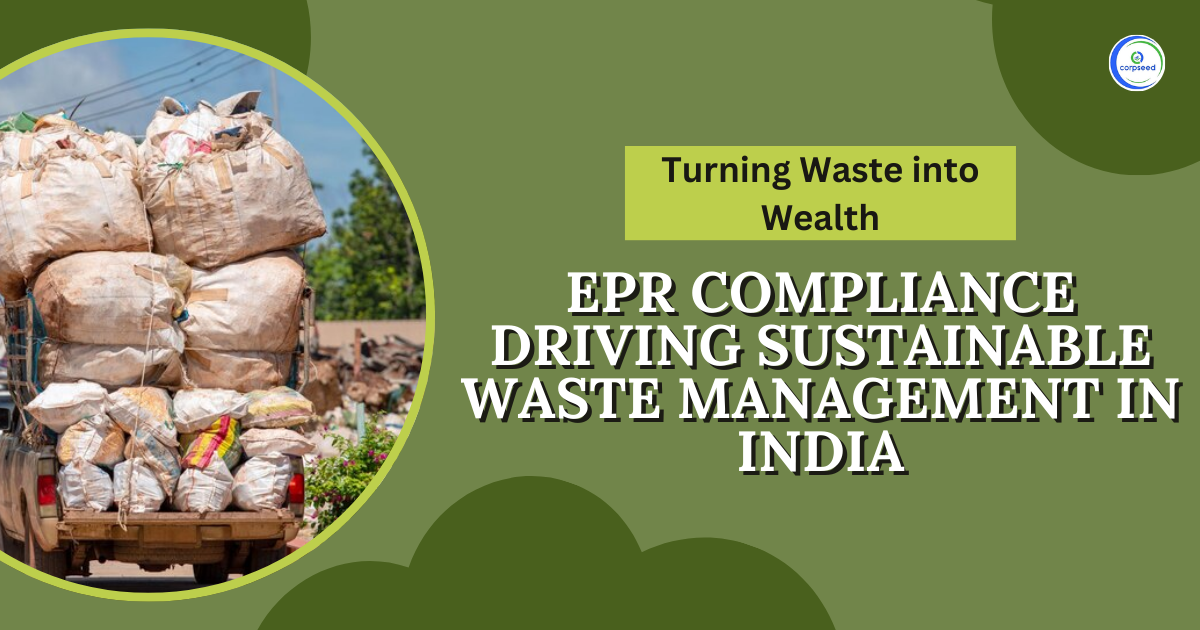Introduction To EPR (Extended Producer Responsibility) Authorization in India
Extended Producer Responsibility, commonly referred to by people as EPR, is an environmental policy that makes businesses accountable for the sustainable management of the E-waste they generate. And in India, the central government has mandated that manufacturers, producers, and brand owners get EPR authorization, or else they can’t operate their business activities. If we talk about the country’s legislation applicable to waste management, the list is quite long, which includes E-Waste Management Rules 2022, Plastic Waste Management Rules 2022, Battery Waste Management Rules 2022, Hazardous and Other Wastes (Management and Transboundary Movement) Amendment Rules, 2022, and many more. Some must be wondering what would happen if anyone violated these rules. Well, every business is under a legal obligation to comply with these rules, and ignorance of them on anyone’s part can attract legal hassles or even shutdown of the regulation operations in some cases. In EPR Certificate, a business gets responsible for the entire lifecycle of its products. This means they have to ensure timely and efficient collection, transportation, storage, treatment, recycling, or disposal of the waste materials they’re legally responsible for. Under EPR authorization, there are three types of authorizations, - Manufacturing, Import , and Wholesale. And, among these, the most difficult to obtain is the manufacturing one as it requires businesses to create proper infrastructure and impart training to their employees for waste management in an environmentally friendly manner.
Type of EPR Authorization
- EPR Registration for Plastic Waste Management
- EPR Registration for E-Waste Management
- EPR Registration for Battery Waste Management
- EPR Registration for Tyres Waste Management
- EPR Registration for Used Oil Management
epr-for-battery-waste-management#epr-for-used-oil#epr-for-non-ferrous-metals#epr-for-environment-protection-end-of-life-vehicles-rules-2025
Table of Contents
- Introduction To EPR (Extended Producer Responsibility) Authorization in India
- Type of EPR Authorization
- EPR Certificate Meaning
- EPR Authorisation Under E-Waste Management
- Documents required for EPR (Extended Producer Responsibility) Authorization
- How Does EPR Work in India?
- The Post-Recycling System
- EPR Authorization Certificate Demo or Format
--------------Blog Contact Form-------------
EPR Certificate Meaning
The EPR certification is for Indian & foreign manufacturers or importers of electric and electronic equipment for E-Waste Management and under the EPR Authorization, you get EPR Certification. EPR registration is compulsory for almost all manufacturers and importers of electronic waste.
Read Our Blog: What is an EPR Certificate?
EPR Authorisation Under E-Waste Management
With the increasing amounts of e-waste, governments have reviewed available policy options and concluded that placing the responsibility for the post-consumer phase of certain goods on producers could be an option. Extended Producer Responsibility (EPR) is a policy approach under which producers are given a significant responsibility – financial and/or physical – for the treatment or disposal of post-consumer products. Assigning such responsibility could in principle provide incentives to prevent wastes at the source, promote product design for the environment and support the achievement of public recycling and materials management goals. Within the OECD the trend is towards the extension of EPR to new products, product groups, and waste streams such as electrical appliances and electronics.
Two categories of electrical and electronic equipment namely:
- IT and Telecommunication Equipment and
- Consumer Electricals and Electronics such as TVs, Washing Machines, Refrigerators, Air Conditioners including fluorescent and other mercury-containing lamps are covered under these Rules.
Central Pollution Control Board directs producers of Electrical and Electronic Equipment to obtain EPR – Authorization
The Central Pollution Control Board (“CPCB”) has, in a recent notice, emphasized the requirement for all producers of Electrical and Electronic Equipment (“EEE”), under the E-Waste Management Rules, 2016, to obtain Extended Producer Responsibility - Authorization (“EPR - Authorization”) from CPCB. The EPR - Authorization can be obtained by applying in Form-I.
The EPR Authorization is needed to ensure that end-of-life EEE generated from the products of the producers are channelized to authorized dismantlers/ recyclers.
Failure to obtain EPR - Authorization will be considered a violation of the Rules and will be punishable under Section 15 of the Environment (Protection) Act, 1986 i.e., with imprisonment up to 5 years with fine up to Rs. 1 Lac, or with both.
Extended Producer Responsibility (EPR) Implementation under Plastic Waste Management Rules, 2016
India was the first country to use EPR to manage electronic waste in 2012. EPR was extended to plastic manufacturers after the announcement of the Plastic Waste Management Rules 2016 (PWMR) in 2016. Plastic manufacturers and importers, as well as brand owners that use plastic for packaging, are now responsible for waste management under the PWMR. Click here to know the new guidelines for Registration of Producers, Importers, Brand owners under PWM Rules 2016,
Read Our Blog: How to Obtain an EPR Certificate for Import in India?
Documents required for EPR (Extended Producer Responsibility) Authorization
- Copy of DGFT license/ permission (IEC certificate)
- Copy of agreement with PRO [if applicable]
- EPR Plan with complete details
- Copy of agreements
- IEC, GST, Pan Card & Aadhar Card Copy of Importer.
- Certificate of incorporation of Private Limited / Public Limited.
- List of products with Model No. and Quantity. ( Approx)
- If the Previous sale already then required
- Date of first sales (day/month/year) &Qty
- Products details with model number
- Country of origin.
- Required Toll-free number
- Required website
How Does EPR Work in India?
EPR puts financial and/or physical responsibility for the treatment, recycling, reuse, or disposal of products after they have been used and discarded. India has a system of Extended Producer Responsibility or EPR. This means that the producer, distributor, retailer and brand owners must each take responsibility for a product at some stage during its life cycle. The producer is responsible for collecting and disposing of their products via an approved recycler. The distributor is responsible for collecting and recycling products. And, retailers are responsible for collecting products to be recycled.
The Post-Recycling System
According to the Extended Producer Responsibility (EPR) law in India, producers must take back all their products at the end of their life cycle and dispose of them responsibly. This means that producers themselves should take responsibility for any product they produce and not pass it on to consumers. The Indian government has set up a resource efficiency policy system:
- All products should be designed so that they can be easily taken apart and recycled
- Useless (and eventually no) virgin material and more recycled or renewable materials
- Collaborate with approved recycling companies or Producer Responsibility Organizations (PROs) for end-of-life management of their products,
- Plan public awareness and education about the advantages of resource efficiency.
Click here to Read the Complete Draft of the National Resource Efficiency Policy
EPR Authorization Certificate Demo or Format



EPR Tyre Registration
The EPR are obligations placed on tire manufacturers to ensure environmentally sound management of waste tires in order to safeguard the environment and public health from any harmful effects that the waste tires may have.
EPR E-Waste Registration
To get this situation under control, the government of India has been taking initiatives from time to time, and EPR for E-waste Management is one among them. EPR, which stands for Extended Producer Responsibility, is an environmental policy approach that seeks people to realize the responsibility of collecting, storing, treating, or disposing of the electronic waste they generate.
EPR Plastic Registration
EPR for Plastic Waste Management is the mandatory registration for PIBOs with the Central and State Pollution Control Boards as per the scope of their operations. This ensures the fulfillment of EPR obligations and management of plastic waste happens in compliance with the guidelines of CPCB.
This portion of the site is for informational purposes only. The content is not legal advice. The statements and opinions are the expression of author, not corpseed, and have not been evaluated by corpseed for accuracy, completeness, or changes in the law.
BOOK A FREE CONSULTATION
Get help from an experienced legal adviser. Schedule your consultation at a time that works for you and it's absolutely FREE.
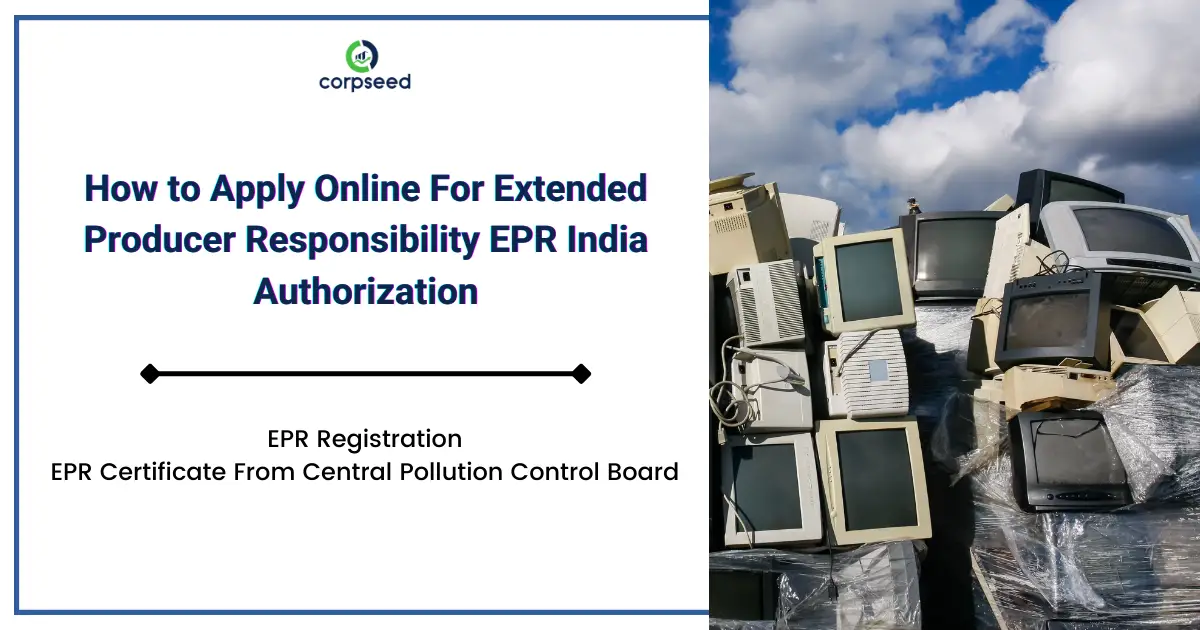

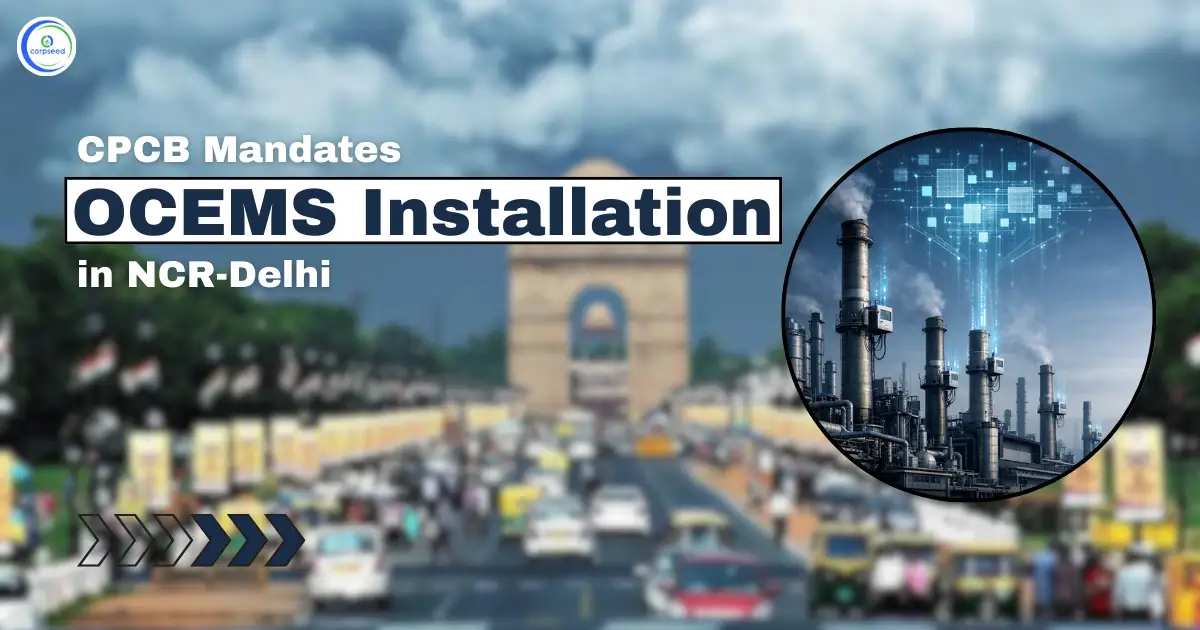
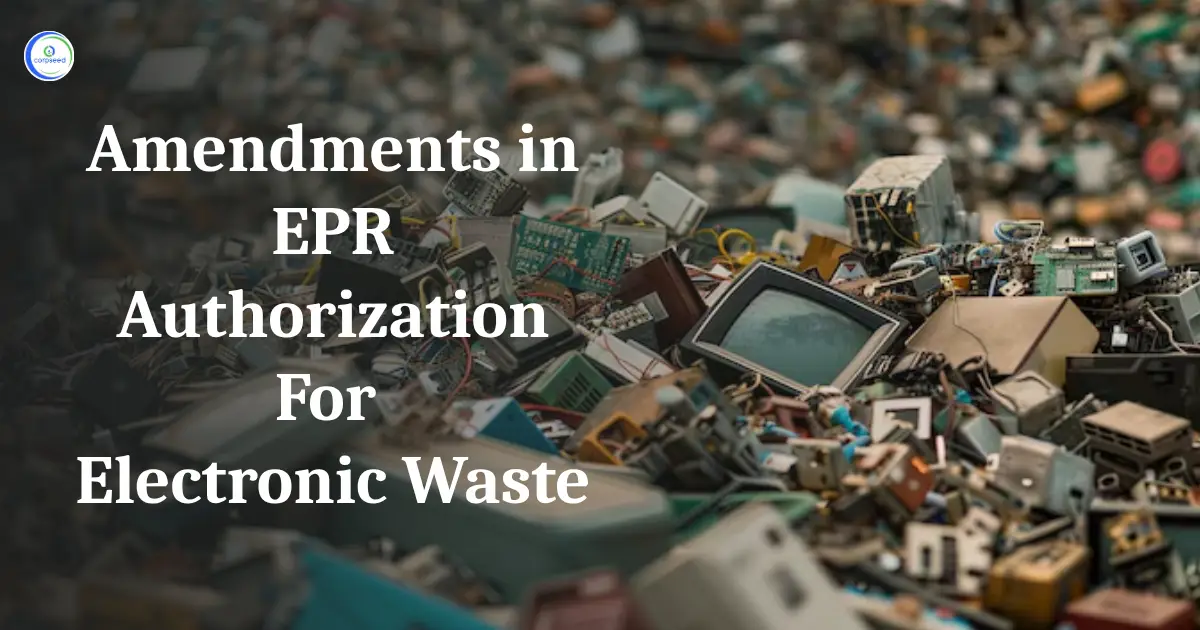
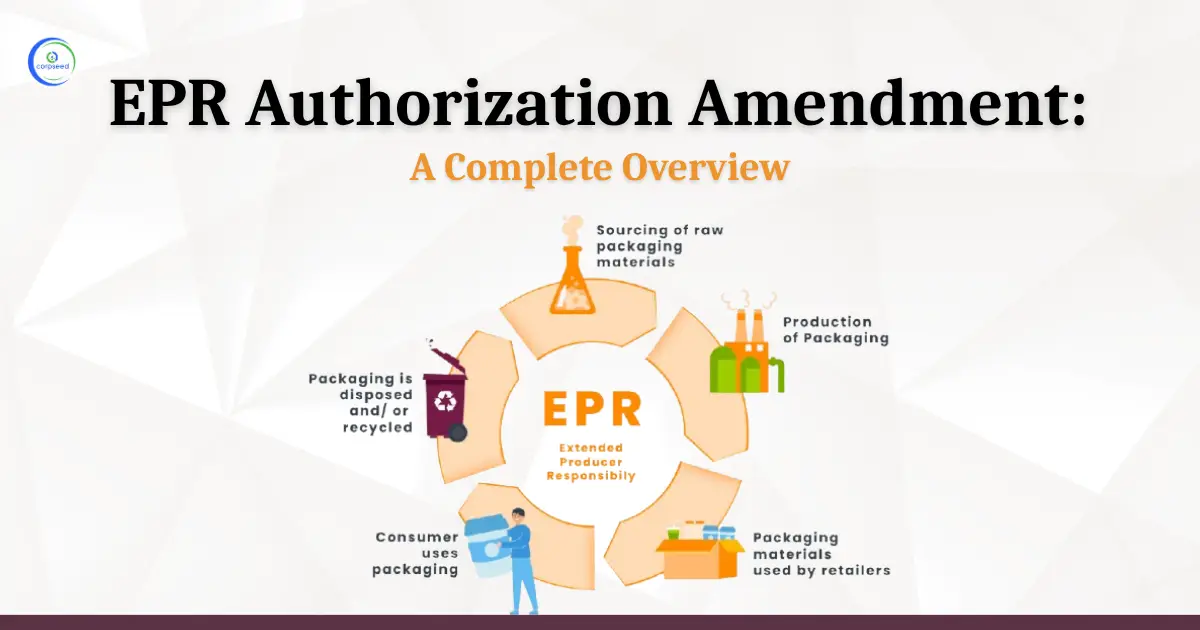
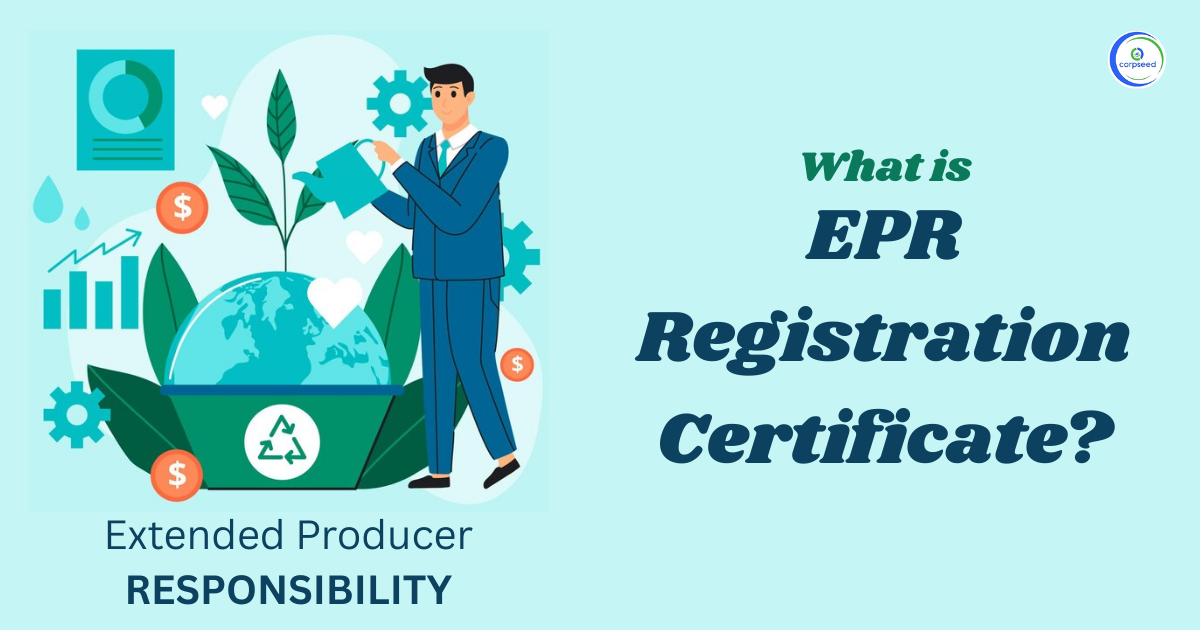
.webp)
